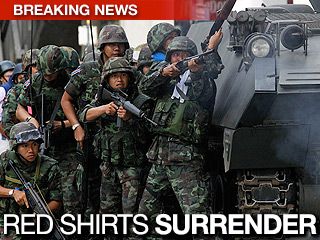Asia
Statement Solidaritas Bersama Hentikan Ancaman Terhadap Venezuela Sekarang!
[In English at http://links.org.au/node/1817.]
3 Agustus 2010
Malaysia: Barricades greet anti-ISA vigils, 36 arrested
By Lee Way Loon and Hazlan Zakaria
August 1, 2010 -- Malaysiakini -- Riot police barred activists from holding candlelight vigils to commemorate the Internal Security Act's 50th anniversary in eight places around the country.
At Dataran MBPJ, Padang Timur in Petaling Jaya, Selangor -- which saw the earliest vigil begin at 8pm -- members of the police Light Strike Force (LSF) began dispersing the 300-strong crowd just as the latter began singing while marching from the mall, through the adjacent car park and towards the field across the main road.
As they approached the field, they were confronted by a wall of LSF shields wielded by about 30 riot police, backed by another 50 uniformed police.
South Korea: Ssangyong trade unionist's appeal

By Australia Asia Workers Links
Thailand: No justice for Red Shirt detainees

By Giles Ji Ungpakorn
July 30, 2010 -- Pro-democracy movement Red Shirt political prisoners, detained by the Abhisit Vejjajiva military junta after the bloody crackdown against unarmed demonstrators in May are facing a total lack of justice with internationally recognised legal standards being blatantly ignored. This is more evidence of the total destruction of democracy, justice and the rule of law in Thailand since the 2006 military coup.
Prachatai, the web-based newspaper, which the junta repeatedly tries to close down, reports that Red Shirt detainees in the north-east provinces of Ubon Rajatanee, Kon Kaen, Mahasarakarm, Mukdaharn and Udon Tanee are facing the following problems and there is no reason to believe that other Red Shirt detainees are any better off elsewhere.
1. Police evidence used for warrants of arrest is unclear and lacking in legal standards. So people have been arrested and detained under conditions where there is a lack of clear evidence.
Banning the veil: Rights of women or anti-Islamic racism and communalism?

July 21, 2010 -- On July 13, the parliament of France, on the eve of Bastille Day, voted 335 to one in favour of preventing Muslim women wearing a full face-covering veil in public. The July 13 Le Monde said the new law was strongly supported by the right. The Socialist Party, Communist Party (PCF) and Green Party abstained. Anyone who chooses to wear a face covering on religious grounds now faces a fine of 150 euros or a “citizenship course”. The law does not come into effect until spring 2011 to allow a period of “education”. There is also a year in prison and a fine of 30,000 euros for anyone found guilty of forcing a woman to wear a veil, a penalty which is doubled if the “victim is a minor”.
Earlier this year, the Indian organisation Radical Socialist issued a statement taking up this wave of Islamophobic legislation in Europe.
* * *
Statement by the Radical Socialist organisation, India
Pakistan: Losing lives to form trade unions

By Farooq Tariq
El significado de la Presidencia de Noynoy Aquino
[English version at http://links.org.au/node/1743.]
Behind Bangkok's war in southern Thailand

Below is an excerpt from Thai socialist Giles Ji Ungpakorn's latest book, Thailand’s Crisis and the Fight for Democracy. It provides an historical background to Thai politics from the pre-capitalist era, through the turmoil of the 1930s and 1970s, up to the present day. It has been posted at Links International Journal of Socialist Renewal with Giles Ji Ungpakorn's permission.
Giles Ji Ungpakorn is a political commentator and dissident. In February 2009 he had to leave Thailand for exile in Britain because he was charged with lèse majesté for writing a book criticising the 2006 military coup. His latest book will be of interest to activists, academics and journalists who have an interest in Thai politics, democratisation and NGOs.
Thailand: Reporting from the ‘Red Zones’

By Lee Yu Kyung
July 11, 2010 -- On July 6, the Thai government approved the extension of an emergency decree in 19 provinces, which includes many in the heartland of the pro-democracy Red Shirts in the country’s north-east. The extension came a day after the Brussels-based International Crisis Group (ICG) recommended the government immediately lift the decree and hold fresh elections.
But Prime Minister Abhisit Vejajiva, who came to power through the army’s intervention, crushed hopes for new elections weeks ago.
There have been tireless efforts to silence critical voices before and after the bloody crackdown on the Red Shirts in May. The International Crisis Group said in a July 5 report that more than 2200 websites have been shut down for alleged violations to the Computer Crime Act since the state of emergency was imposed on April 7.
Timor Leste and Australian activists reject Australian government's racist refugee policy

Statement by Luta Hamutuk, Timor-Leste Institute for Research, Advocacy and Campaigns
Sosialis Australia Tolak Rencana Pusat Suaka di Timor Leste

Oleh: Data Brainanta
8 Juli 2010 -- Berdikari -- Aktivis partai Aliansi Sosialis (Socialist Alliance – SA) di Australia menolak rencana PM Julia Gillard untuk membangun pusat pemrosesan suaka regional di Timor Leste.
Kandidat SA dari Perth, Alex Bainbridge, menggambarkan bahwa rencana menampung pencari suaka Australia di Timor Leste bukan didasarkan atas belas kasihan dan keadilan, sebagaimana dikatakan oleh PM tersebut, melainkan untuk mendorong pemenjaraan lebih banyak lagi.
“Kebijakan yang sesungguhnya kita butuhkan adalah yang berdasarkan belas kasihan dan rasa keadilan – yakni menempatkan mereka di tengah-tengah komunitas [masyarakat] Australia,” kata Bainbridge.
“Fakta sederhananya, pemenjaraan adalah pemenjaraan – apakah pemenjaraan itu di Pulau Christmas atau Leonora, Timor Leste atau Nauru,” tambahnya.
